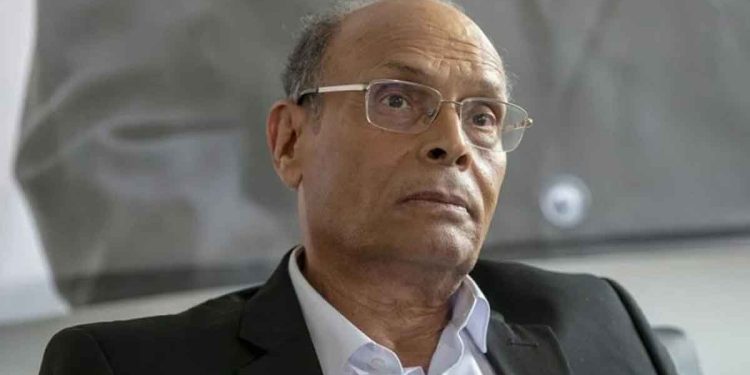On Wednesday, December 22, 2021, a Tunisian court has sentenced former president Moncef Marzouki to four years in jail on charges of “conspiring against state security.”
After Tunisia’s 2011 revolution that introduced democracy, an elected assembly appointed Marzouki, a leading human rights defender, as the interim president, overseeing the transition to a new constitution in 2014.
The 76-year-old, who currently lives in France and was tried in absentia, had previously criticised President Kais Saied and called for mass protests against his grasp of power.
He also called on France to end support for the current administration and to “reject all support for this regime and this man who plotted against the revolution and abolished the constitution”.
On November 4, 2021, Tunisian authorities issued an arrest warrant against former president Marzouki, a week after current President Kais Saied asked the Justice Minister to initiate a judicial investigation against ‘those who plot against Tunisia abroad.’
An inquiry was immediately opened into the allegations that Marzouki, who was in office from 2011 to 2014, had conspired against state security.
The arrest warrant was issued by the investigating judge in charge of the case, citing the communications office of the Tunis First Instance Court.
The move was followed by a Presidential order to withdraw Marzouki’s diplomatic passport over his press remarks.
Tunisian human rights figures and political leaders have strongly condemned the court’s order, considering it a stigma to the Tunisian justice system.
Since his sweeping decisions announced on July 25, President Kais Saied has repeatedly pointed his finger at judicial authorities.
Addressing the nation on July 25, Saied announced that he would preside over the office of the public prosecutor.
Since then, cases accusing judges of wrongdoing have emerged, with 45 judges now placed under house arrest.
This came as protest have been sweeping the North African country in rejection of Saied’s 25 July “exceptional measures”, according to which he suspended parliament and dismissed the government, before later appointing a government and announcing a plan for a referendum and elections next year.






























